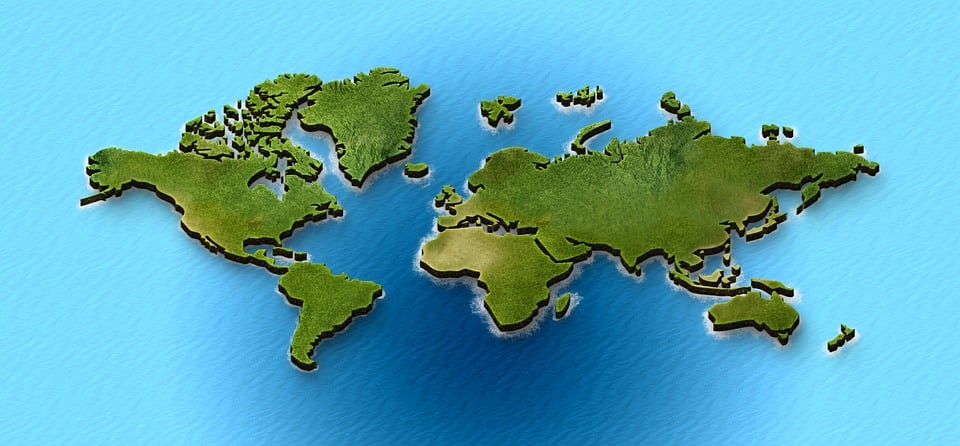Geography is a multidisciplinary field that encompasses the study of the Earth’s physical features, climate patterns, human societies, and their interactions with the environment. It provides a unique perspective on the world we live in and offers invaluable insights into the complex processes that shape our planet. In this article, we will explore ten compelling reasons why studying geography is not only academically rewarding but also relevant and essential in today’s interconnected global society.
Table of contents
- #1 Understanding Earth’s Physical Systems
- #2 Unveiling the Power of Maps and Spatial Analysis
- #3 Investigating the Human-Environment Interaction
- #4 Nurturing Environmental Awareness and Sustainability
- #5 Examining Patterns of Globalization and Economic Development
- #6 Analyzing Cultural Diversity and Social Dynamics
- #7 Exploring Political Landscapes and Geopolitics
- #8 Enhancing Critical Thinking and Problem-Solving Skills
- #9 Fostering Global Citizenship and Cross-Cultural Competence
- #10 Unlocking Career Opportunities
#1 Understanding Earth’s Physical Systems
Studying geography offers an in-depth understanding of the Earth’s physical systems, including landforms, climate, weather patterns, ecosystems, and natural disasters. By delving into topics such as plate tectonics, erosion processes, and climatic variations, students gain a comprehensive grasp of the forces that have shaped and continue to shape our planet.
#2 Unveiling the Power of Maps and Spatial Analysis
Geography equips students with essential skills in map reading, interpretation, and spatial analysis. Maps are powerful tools for visualizing and analyzing spatial relationships, patterns, and distributions. Proficiency in spatial analysis enhances decision-making in a wide range of fields, from urban planning to epidemiology, by enabling professionals to identify trends, make predictions, and devise effective strategies.
#3 Investigating the Human-Environment Interaction
Geography explores the intricate relationship between human societies and the environment. By examining topics like resource management, land use, and environmental impacts, students develop an understanding of how human activities shape and are influenced by the natural world. This knowledge is crucial for addressing contemporary challenges such as climate change, deforestation, and habitat degradation.

#4 Nurturing Environmental Awareness and Sustainability
In an era characterized by pressing environmental concerns, studying geography cultivates environmental awareness and promotes sustainable practices. Geography education encourages students to become environmentally responsible citizens, fostering an understanding of the interconnectedness between humans and the natural environment and inspiring actions that contribute to a more sustainable future.
#5 Examining Patterns of Globalization and Economic Development
Geography provides insights into the dynamics of globalization, economic development, and spatial inequalities. By analyzing trade patterns, migration flows, and regional disparities, students gain a deep appreciation for the complexities of our globalized world. This knowledge is valuable for understanding international relations, economic systems, and the distribution of wealth and resources.
#6 Analyzing Cultural Diversity and Social Dynamics
The study of geography sheds light on cultural diversity and social dynamics across the globe. It explores topics such as language, religion, migration, urbanization, and social inequality, enabling students to comprehend the complexities of human societies. This understanding fosters tolerance, empathy, and cross-cultural competence, essential qualities in an increasingly interconnected world.
#7 Exploring Political Landscapes and Geopolitics
Geography encompasses the examination of political landscapes and geopolitical phenomena. By studying topics such as borders, territorial disputes, and international relations, students develop a nuanced understanding of the political forces that shape our world. This knowledge is crucial for comprehending global conflicts, diplomatic relations, and the interplay of power on regional and international scales.
#8 Enhancing Critical Thinking and Problem-Solving Skills
Geography education enhances critical thinking and problem-solving skills. It encourages students to analyze complex spatial relationships, evaluate multiple sources of information, and synthesize data to draw informed conclusions. Geographic problem-solving involves considering diverse perspectives, assessing risks, and proposing sustainable solutions, valuable skills applicable to various academic and professional pursuits.
#9 Fostering Global Citizenship and Cross-Cultural Competence
Studying geography nurtures global citizenship and cross-cultural competence. It promotes an understanding of diverse cultures, worldviews, and perspectives, enabling students to engage with and respect people from different backgrounds. Geographic literacy empowers individuals to become informed global citizens who actively contribute to solving global challenges and promoting social justice.
#10 Unlocking Career Opportunities
A geography education opens up a wide array of career opportunities. Geographers find employment in fields such as urban planning, environmental management, GIS analysis, international development, tourism, market research, and many more. The interdisciplinary nature of geography equips individuals with versatile skills that are sought after in an increasingly interconnected and complex world.
Bibliography
- De Blij, H. J., & Muller, P. O. (2010). Geography: Realms, Regions, and Concepts (14th ed.). John Wiley & Sons.
- Heywood, I., & Cornelius, S. (2019). An Introduction to Geographical Information Systems (4th ed.). Pearson.
- Knox, P. L., Marston, S. A., & Imort, M. (2018). Human Geography: Places and Regions in Global Context (8th ed.). Pearson.
- Marsh, W. M., & Alagona, K. (2017). Physical Geography: Great Systems and Global Environments (5th ed.). Cambridge University Press.
- Norton, W. (2018). Human Geography (9th ed.). Oxford University Press.
- Price, M., & Price, L. (2017). Introduction to Geographic Information Systems: A Practical Approach (2nd ed.). Routledge.



 For all latest articles, follow on Google News
For all latest articles, follow on Google News